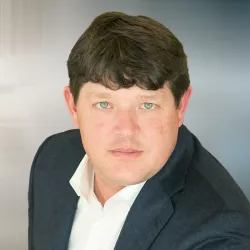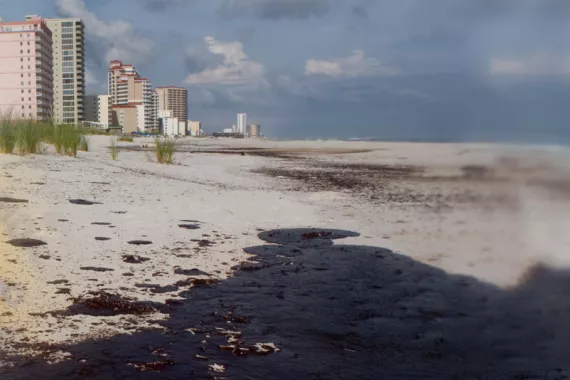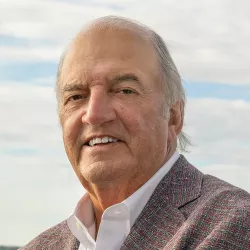
Case Overview
The BP Deepwater Horizon Oil Spill caused an incredible amount of suffering and damage to Gulf Coast businesses, residents and the environment, much of which is still being realized today. Despite BP‘s attempts to get out of the settlement it agreed to, the BP Deepwater Horizon Business and Economic Loss Settlement Agreement was finalized on Dec. 8, 2014, and accepted settlement claims until June 8, 2015.
Our Experience in the BP Oil Spill Litigation
Motley Rice co-founder Joe Rice has been active on the negotiating team of MDL 2179 (In re Oil Spill by the Oil Rig "Deepwater Horizon" in the Gulf of Mexico on April 20, 2010) since 2010 and is a member of the Plaintiffs Steering Committee (PSC). Motley Rice members John Baden and Fred Baker were also central to the settlement process. Member Kevin Dean began working with injured parties in April 2010 and served on the GCCF Jurisdiction & Court Oversight Workgroup. Our attorneys remain in a leadership role in the BP litigation.
Basic Information about the Settlement Agreement
- When the Court-Supervised Settlement Program (Settlement Program) took over for the previous Gulf Coast Claims Facility (GCCF) in June 2012, all outstanding claims and non-expired offers were protected, and all pending claims submissions were transferred to the new program. New and additional claims were accepted until June 8, 2015.
- Compensation was also available to eligible property owners and long-term lessees of waterfront properties in the affected coastal and wetland regions.
- The settlement had no financial caps.
- A claimant could file multiple economic claims if additional claims were filed within six months of the first and before the filing deadline of June 8, 2015.
About the Economic and Property Loss Settlement
Eligible applicants, which included individuals and businesses, are intended to be compensated for a range of losses. The Claims Center continues to review and process settlement claims. As the Claims Center considers the settlement claims, they may request additional documentation or have additional questions.
Click here for an in-depth account of the Settlement program, issued by the U.S. District Court for the Eastern District of Louisiana. Specified Gulf Coast areas and waters mentioned below can be viewed at the court-authorized website.
Generally, the Economic and Property Loss Settlement involves the following types of claims, which were due June 8, 2015:
- Business Economic Loss- People/businesses doing business or operating in the specified Gulf coast areas or specified Gulf waters between April 20, 2010, and April 16, 2012, that lost profits, income or earnings.
- Coastal Real Property Damage- Eligible coastal real property owners who owned their property between April 20, 2010, and Dec. 31, 2010, or those who leased eligible coastal real property for 60 days or longer between April 20, 2010, and Dec. 31, 2010, and executed the lease before April 20, 2010.
- Failed Business Economic Loss- Businesses that began operating before Nov. 1, 2008, and stopped operating, entered bankruptcy or liquidated assets between May 1, 2010, and Dec. 31, 2011.
- Individual Economic Loss- People who lost earnings from employment and worked as of April 20, 2010, in specified Gulf Coast areas or specified Gulf waters; accepted an offer to work as a seasonal employee between April 21, 2010, and Dec. 31, 2010, in the same or a similar seasonal position that was previously held; or accepted a first-time employment offer to begin work between April 21, 2010, and Dec. 31, 2010.
- Individual Periodic Vendor (IPV)- Person claiming economic loss between May 1, 2010, and Dec. 31, 2010, who regularly sold eligible legal food, souvenir, art, tourist-related, or water-related goods or services during 2009 and 2010.
- Festival Vendor Economic Loss- Person claiming economic loss between May 1, 2010, and Dec. 31, 2010, who regularly made festival sales prior to April 20, 2010, in specified areas at events such as street festivals, tournaments/major sporting events, outdoor art exhibitions or carnivals.
- Loss of Subsistence Use- People who fish or hunt to harvest, catch, barter, consume, or trade Gulf of Mexico natural resources to sustain their basic or family dietary, economic security, shelter, tools or clothing needs and suffered loss between April 20, 2010, and Dec. 31, 2011.
- Physical Damage to Vessels- Owners of eligible vessel(s) between April 20, 2010, and Dec. 31, 2011, who suffered physical damage to a vessel as a result of the oil spill or certain cleanup efforts.
- Real Property Sales- Residential property owners as of April 20, 2010, who sold the property at a lower price because of the oil spill between April 21, 2010, and Dec. 31, 2010.
- Start-up Business Economic Loss- Businesses that began operating on or after Nov. 1, 2008, and stopped operating, entered bankruptcy or liquidated assets between May 1, 2010, and Dec. 31, 2011.
- Vessels of Opportunity Charter Payment- Those who registered to participate in BP's Vessels of Opportunity (VoO) program and executed a VoO Master Vessel Charter Agreement.
- Wetlands Real Property Damage- Coastal wetlands real property owners who owned their property between April 20, 2010 and April 16, 2012.
Part of the Settlement Agreement but within a separate fund was the Seafood Compensation Program. This $2.3 billion fund compensated eligible economic damage claims of oyster leaseholders, seafood vessel owners, commercial fishermen and seafood crew. NOTE: the deadline to participate in this program was January 22, 2013.
High-resolution PDFs of claim zones, as well as an interactive mapping tool, are available at the court-supervised website.
Gulf Coast Claims Facility
On June 16, 2010, BP agreed to create a Gulf Spill Fund for victims of the spill, telling President Obama that they would set aside $20 billion to fund it and that attorney Kenneth Feinberg, who previously administered the 9/11 Victims Compensation Fund, would independently administer the fund.
Under Feinberg, the Gulf Coast Claims Facility (GCCF) began accepting claims on Aug. 23, 2010. At that time, BP had already paid emergency compensation funds totaling more than $375 million.
In July 2011, an independent audit was conducted of the GCCF and found that more than 7,000 claimants were either wrongfully denied or underpaid. The GCCF made an additional $64 million in payments due to the audit’s findings and in May 2012, following a class-action settlement that created the Economic and Property Damages Settlement (the Settlement Agreement), the claims facility was turned over to court-supervised administrator Patrick Juneau.
Court-Supervised Settlement Program
Under Patrick Juneau, the court-supervised settlement program, or DHECC (Deepwater Horizon Economic Claims Center), opened in June 2012 and began processing claims previously submitted to the GCCF as well as taking new claims. The program was originally scheduled to remain open until April 2014, but less than a year into his administration, BP sued Patrick Juneau for allegedly compensating claims that did not fall under the settlement’s agreed-upon terms and added that many of those claims were likely scams. After the U.S. Supreme Court denied hearing appeals related to BP's opposition to the settlement, the final settlement claim filing deadline was set for June 8, 2015.
Claims Center Reopens and Claims Deadline Set
While claims payments were essentially halted, BP petitioned the Fifth Circuit for a rehearing of its appeals, claiming that the Settlement Agreement it had agreed to in May 2012 was unconstitutional. The Fifth Circuit turned down this appeal in May 2014, so BP sought review of the Fifth Circuit’s decision by the U.S. Supreme Court. The Supreme Court also denied a hearing of BP’s case in December 2014 and with that, the Court Supervised Settlement Program reopened with a new deadline: all claimants, whether filing new claims or additional claims, needed to file by June 8, 2015.

